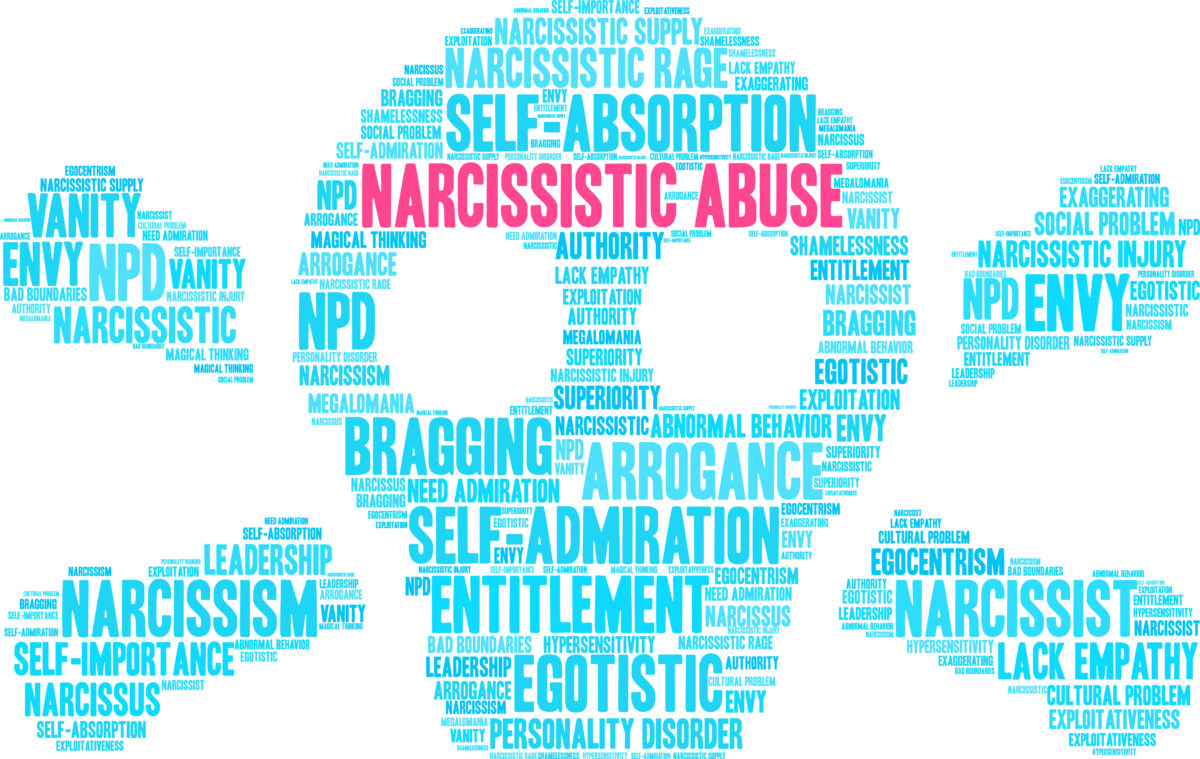Narcissists are skilled manipulators who use charm, deceit, and emotional control to get what they want. Their words are carefully crafted to distort reality, making you doubt yourself, your actions, and even your perception of events. If you’ve ever had the unfortunate experience of interacting with a narcissist, you may have heard some of these lies or, worse—believed them.
In this article, we’ll uncover 9 common lies narcissists tell and how you can protect yourself from their manipulation tactics. By understanding their behavior and recognizing the red flags early, you can avoid falling prey to their emotional games.
1. I’m the Only One Who Truly Understands You
Narcissists are experts at making you feel special—at first. They claim to understand you better than anyone else, tapping into your insecurities and emotions. They know exactly what to say to make you feel seen, heard, and validated. However, this lie serves a sinister purpose: to make you emotionally dependent on them.
Why It’s a Lie: Narcissists thrive on control. When they convince you that no one else “gets” you, they create a false sense of intimacy and reinforce your reliance on them. This makes it harder for you to trust others or even yourself. They are not truly interested in your well-being but in maintaining power over you.
How to Protect Yourself: Build your support network and strengthen your relationships with people who have proven to be trustworthy. Trust your instincts and remember that no one person, especially a narcissist, holds the keys to your identity.
2. It’s All Your Fault
One of the most common lies narcissists tell is shifting blame onto others. It’s never their fault if something goes wrong—it’s yours. Whether it’s a minor mistake or a major problem, narcissists will use this tactic to avoid accountability.
Why It’s a Lie: Narcissists refuse to take responsibility for their actions, preferring to project their flaws onto others. This can lead to guilt and self-doubt, making you question whether the problem was your fault.
How to Protect Yourself: When a narcissist accuses you of something, take a step back and objectively evaluate the situation. Don’t internalize their blame. Remind yourself that everyone makes mistakes, but narcissists rarely acknowledge their own.
3. I Would Never Hurt You
This lie is designed to make you feel safe and trust them unconditionally. Narcissists use this phrase to disarm you, creating an illusion of security. They might claim to have your best interests at heart, only to betray your trust later or manipulate you when it benefits them.
Why It’s a Lie: Narcissists are often incapable of empathy, meaning they are willing to hurt others to get what they want. Their idea of “hurting” others doesn’t align with your definition—they may justify their actions as necessary for their well-being or goals.
How to Protect Yourself: Don’t rely on words alone—watch their actions. If their behavior doesn’t align with their promises, take it as a red flag. Trust actions over words.
4. You’re Just Too Sensitive
Narcissists will often dismiss your feelings by labeling you as “too sensitive” or “overreacting.” This is one of their favorite tactics to avoid addressing their hurtful behavior. It invalidates your emotions and makes you second-guess your reactions.
Why It’s a Lie: Narcissists use this lie to silence you and prevent any confrontation. The goal is to make you feel like your feelings are irrational or unjustified. They want to escape responsibility for their actions by twisting the narrative.
How to Protect Yourself: Be firm in your feelings and remind yourself that your emotions are valid. If someone constantly invalidates your emotions, they’re not being empathetic—they’re being manipulative.
5. I’ve Changed
Narcissists are notorious for cycling through periods of charm and manipulation. After a confrontation or argument, they may promise they’ve “changed” and will be different moving forward. This attempts to reel you back in with empty promises, hoping you’ll let your guard down.
Why It’s a Lie: Narcissists rarely change, and even if they do, it’s often temporary. Their “change” is typically a tactic to restore control, not a genuine transformation. They will eventually return to their old behavior once the crisis has passed.
How to Protect Yourself: Pay attention to consistent behavior over time, not just empty words. Actions speak louder than promises, especially when it comes to narcissists. If the behavior doesn’t change, neither will the dynamic.
6. I Only Want What’s Best for You
Narcissists often frame their manipulative actions as being in your best interest. They will justify their controlling behaviors, saying they are “just trying to help” or “protect you” from harm. In reality, they’re trying to control and limit your choices.
Why It’s a Lie: A narcissist’s version of “what’s best for you” typically aligns with their desires and agenda. They manipulate your decisions and emotions to maintain their power over you.
How to Protect Yourself: Always question whether their actions truly align with your goals and needs. Look for patterns where your autonomy is restricted, and remember that real love and care respect your individuality and independence.
7. Everyone Else Is the Problem
If you’re dealing with a narcissist, they will often point fingers at everyone else, painting themselves as the victim. Whether it’s family, friends, or coworkers, they claim that other people are the problem, and they are just trying to “do the right thing.”
Why It’s a Lie: Narcissists refuse to take responsibility for their actions and often place blame on others to avoid facing their flaws. They want to manipulate you into thinking that they are the only sane ones in the room.
How to Protect Yourself: If someone consistently blames others for everything that goes wrong, this is a sign of narcissism. Be cautious of people who always play the victim and avoid getting caught in their drama.
8. I’m Just Trying to Help You
Narcissists love to offer unsolicited “advice” or “help” that benefits them. Whether it’s “helping” you with a decision or offering to solve a problem, their actions are often self-serving.
Why It’s a Lie: Their help is often laced with strings attached to keep you dependent on them. Narcissists rarely offer help without an ulterior motive.
How to Protect Yourself: When a narcissist offers help, evaluate their intentions. Are they genuinely trying to assist you, or is there a hidden agenda? Real help is given without expectation of return or control.
Also Read: 10 Hidden Traits of a Cold-Hearted Man Every Woman Should Know
9. I’ve Always Loved You
In an attempt to regain control, narcissists might try to convince you that their love for you has never wavered. This lie is meant to manipulate your emotions and keep you hooked, even if their actions haven’t matched their words.
Why It’s a Lie: Narcissists view relationships as a means to get what they want. Their love is conditional and often tied to how much they can extract from you. The words are meaningless if their behavior doesn’t align with their claims of love.
How to Protect Yourself: Recognize that love is shown through actions, not words. If their behavior doesn’t demonstrate care, their love is likely superficial and self-serving.
Final Thoughts
Narcissists may seem like they have everything under control, but once you see through their lies, you can regain your power. Don’t let their words manipulate your sense of self-worth. You deserve honesty, respect, and genuine love—not empty promises and deceit. Stay alert, protect yourself, and remember that anyone else’s narrative doesn’t define your value.
Also Read: 10 Skills to Move On from Your Ex Instantly







